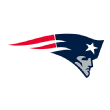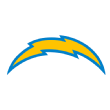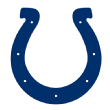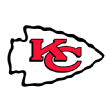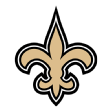Lucky moves that shaped all eight NFL playoff rosters

Every single team to win a Super Bowl has needed to get lucky along the way. A key fumble bounced into their hands. A dangerous would-be opponent was eliminated before they could ever match up. A star player narrowly avoided an injury. Luck might be the residue of design, but in the NFL, your luck also can be a product of someone else's subpar design.
Each of the eight remaining playoff teams made brilliant draft picks, found smart coaches and devoted hours upon hours to scouting the right talent for their roster. They also got lucky. The hands of fate conspired to open up opportunities for organizations to look very smart after the fact. In many cases, the moves didn't even involve a conscious decision from the executives and owners who proudly stand behind their playoff teams today. Fortuitous timing and mistakes from other teams were enough to help build some of the best teams in football.
Let's run through the ways the eight remaining Super Bowl contenders were built by accident. I'll start in the AFC, where the Patriots' dynasty was built upon a move nearly 20 years old ...
Jump to a team:
IND | KC | LAC | NE
DAL | LAR | PHI | NO
March 12, 1999:The Rams sign away LB Todd Collins from the Patriots.
What happened next: The Patriots get a compensatory pick and use it on QBTom Brady.
Bill Belichick might have drafted Brady, but the draft pick the Patriots used to select Brady actually made its way to New England while Belichick was still defensive coordinator of the Jets. When I analyzed Belichick's propensity for accumulating draft picks back in 2015, I found that the Pats had cap trouble under Pete Carroll's administration during the 1999 offseason and had to let several starters leave in free agency. They also simultaneously signed several players and were awarded four compensatory picks in the 2000 draft: a fourth-rounder, two sixth-rounders and a seventh-round selection.
By virtue of the various contracts handed out to the Patriots who left, we can narrow down the two sixth-rounders to defensive tackle Mark Wheeler and linebacker Todd Collins, who shares a name with a longtime backup quarterback. I'm going to guess that Collins, who was signed by the Rams to a four-year deal, was the free-agent loss who handed the Patriots the 199th pick in the 2000 draft. The Patriots famously debated between drafting Brady and Louisiana Tech product Tim Rattay, who would eventually go to the 49ers.
You know what happened next for Brady, who is unquestionably the best draft pick in league history. Collins won a ring with the Rams but was out of football by 2001, the year Brady took over as Patriots starter for an injured Drew Bledsoe and led New England to the Super Bowl, where it beat those very same Rams. Patriots fans might already feel like Carroll handed them one Super Bowl (XLIX), but that might be selling short the history of how the Patriots ended up with Brady.
March 1, 2017: The Bills decline to place the franchise tag on CB Stephon Gilmore.
What happened next: Gilmore signs with the Patriots.
March 2017 was a weird period for the Bills, who had hired Sean McDermott to replace Rex Ryan. Doug Whaley was still the team's general manager, but it's hard to believe he had much say in personnel decisions, given that the Bills fired Whaley immediately after the 2017 draft and replaced him with Panthers executive Brandon Beane.
The key free agent for the Bills was Gilmore. While the 2012 first-round pick had struggled with consistency in Buffalo, he finished his fifth year in Western New York by picking off five passes and making his first Pro Bowl appearance. It was a bit of a surprise when the Bills declined to retain Gilmore's rights with the franchise tag, which would have come in at $14.2 million. Had they done so, it seems likely that Buffalo would have eventually come to terms with the South Carolina product on a contract extension.
Instead, Gilmore went into free agency. Amid reported interest from the Bears, Gilmore instead signed with the Patriots on a five-year, $65 million deal that paid the cornerback just under $42 million over its first three seasons. The move ensured that the Patriots wouldn't re-sign fellow free agent Logan Ryan and put the writing on the wall for 2018 free agentMalcolm Butler, who was frozen out during the Super Bowl LII loss to the Eagles. Gilmore got off to a slow start in Foxborough, but he has emerged as one of the best corners in football and was just named a first-team All-Pro.
Aug. 31, 2003: The Chargers elect to go with two quarterbacks and cut Seth Burford and Cleo Lemon.
What happened next:TEAntonio Gates makes the 53-man roster.
The Chargers first signed Gates as an undrafted free agent in the hours after the 2003 draft, as part of a rookie free agent class that included future NFL veterans Kris Dielman (a defensive tackle who would eventually convert to guard), Stephen Cooper, Jacques Cesaire and Kassim Osgood. It's one of the best undrafted free-agent classes in league history, and Gates is the most notable contributor.
The odds were against him making the roster, given that the Kent State basketball star hadn't even played college football. The 6-foot-4, 255-pound Gates caught only three passes for 62 yards during the preseason, and in most cases, teams tend to try to stash athletes like this on the practice squad if they can get away with it. The Chargers read the situation differently. They decided to keep four tight ends on their roster, clearing out room by cutting both of their third-string quarterback options behind Doug Flutie and Drew Brees.
Gates started the season buried on the depth chart behind starter Justin Peelle, but after the Chargers started 0-4 they began to focus on younger talent and inserted Gates into the starting lineup. Gates was relatively anonymous and lost the starting job for a week before breaking out with a 117-yard game against the Packers in Week 15. He had two touchdowns on 24 catches as a rookie; the following year, Gates would score 13 times as the Chargers made an unexpected return to the postseason. He has been around ever since.
March 2016: The Browns decide QBCarson Wentz isn't worth the second overall pick and start shopping their selection.
What happened next: The Eagles trade up to get Wentz, and the Chargers draft DEJoey Bosawith the third overall pick.
It doesn't seem quite as painful after the Browns eventually landed their quarterback of the future with Baker Mayfield, but one of the first acts of the Sashi Brown regime in Cleveland was to evaluate Wentz as a long-term quarterback. The brain trust, which included former Dodgers general manager Paul DePodesta and coach Hue Jackson, eventually decided that Wentz wasn't worth the No. 2 pick. (Jackson has claimed he wanted to take Wentz second, but NFL.com's Mike Silver suggested Hue felt otherwise in 2016.)
The Browns traded down with the Eagles, who grabbed the North Dakota State star and won the Super Bowl two years later. Had the Browns stayed put, they might very well have pursued Bosa, who plays a premium position and would have filled a need for a team that took Myles Garrett with the first overall pick the following year. Bosa reportedly had a promise the Chargers would take him with the third overall pick, which might be why he wore sweatpants to his pre-draft visit with the Browns. The Browns ended up drafting since-cut wideout Corey Colemanwith the No. 15 pick, while the Chargers found a star pass-rusher.
June 22, 2017: The Chiefs part ways with general manager John Dorsey.
What happened next: With Chris Ballard in Indianapolis, Kansas City promotes Brett Veach to GM.
In this case, it's more about what happened first. After interviewing with the Buccaneers, Bears and Titans before the 2016 season, Ballard eventually found the right job when he took over as Colts general manager in January 2017. He inherited a roster bereft of impact draft picks and loaded with subpar veterans, but within two years Ballard managed to clear out the deadwood and build a playoff team. After an excellent 2018 draft, the Colts are heading into the offseason with a talented young core and more than $122 million in cap space.
It could have gone very differently, though, if the Chiefs had acted earlier. Ownership parted ways with Dorsey at a strange time in the NFL calendar and after a sustained run of success for the organization. The move came just after Andy Reid was given a contract extension, while reports afterward suggested that communication and management issues were at the core of Dorsey's problems.
What if the Chiefs had decided to fire Dorsey after they were eliminated from the 2016 postseason, or allowed him to leave for a similar job with the Packers? They lost to the Steelers on Jan. 15, two weeks before Ballard was hired by the Colts. Had they fired Dorsey, the most obvious candidate to take over as general manager would have been Ballard. Instead, with Ballard out of the organization, the Chiefs promoted Veach, the co-director of player personnel, to the role.
The Chiefs are doing just fine with Veach at the helm, but where would Indy be without Ballard? Their other candidates haven't graduated to bigger roles. Eliot Wolf missed out on the Packers GM job and went to work under Dorsey in Cleveland. Vikings assistant general manager George Paton got his name out as a possible candidate in December but hasn't been the subject of much chatter for a GM job this offseason. Internal candidate Jimmy Raye left to go work for the Lions, while Seahawks executive Trent Kirchner was the subject of a midgame tirade from Doug Baldwin.
March 15, 2018:QBKirk Cousins turns down a bigger deal from the Jets to sign with the Vikings.
What happened next: The Jets trade up with the Colts.
Could you turn down $6 million in guaranteed money? That's exactly what Kirk Cousins did during free agency this season. According to Cousins, the Jets came in at the beginning of the free-agent period with a three-year, $90 million fully guaranteed offer, which was a significant leap from the three-year, $75 million deal proposed by the Vikings. Minnesota eventually got to three years and $84 million, which was enough to convince Cousins to head to Minneapolis.
When the Jets missed out on Cousins, their next move was to pursue one of the draft's top quarterbacks. To get a good shot at nabbing one, the Jets were forced to move from the sixth pick to the third overall selection, which cost New York their own first-round pick and three second-round selections. The Jets chose Sam Darnold, and after a hot end to the season, they're understandably excited about what Darnold might do in a Jets uniform.
The Colts aren't upset about trading down, either. They've managed to turn the second pick into some significant assets. Indy used the No. 6 pick on guard Quenton Nelson, who was a first-team All-Pro in his rookie season. They turned one of the Jets' second-rounders into Braden Smith, who started 13 games and appears to be Indy's right tackle of the future. They traded another to the Eagles for two picks, with Kemoko Turay and Jordan Wilkins each showing promise in rotational roles during their rookie campaigns. They also have the Jets' second-rounder in 2019 coming their way, and after a dismal campaign from Gang Green, the Colts will be inheriting the 34th overall selection.
April 27, 2017: The Bills decide Patrick Mahomes isn't a franchise quarterback.
What happened next: They trade their first-round pick to the Chiefs, who do.
One of the other elements to that tumultuous 2017 offseason for the Bills is that they passed up the chance to draft this season's likely MVP. The Bills were getting by with Tyrod Taylor at quarterback, although they already had forced the former Ravens backup to take a $10 million pay cut on his extension in March. It's unclear how much say different parties had in Buffalo's 2017 draft, but given that Whaley had completed two big trades up in moves for Sammy Watkins and Reggie Ragland while trading down only once (and that by a mere two spots), it didn't seem like Whaley was the one who made the call on Buffalo trading out of the 10th overall pick.
If the Bills had evaluated Mahomes and thought he could end up looking anything like the guy who has ripped apart the NFL this season, they obviously would have taken him with their first-round pick. Instead, they sent the 10th selection to the Chiefs for the 27th and 91st selections, along with Kansas City's 2018 first-round pick, which ended up as the 22nd pick. The Bills drafted star cornerback Tre'Davious White with Kansas City's 2017 first-rounder, and then used the other two picks in trades that eventually netted them Zay Jones and Tremaine Edmunds. Sean McDermott undoubtedly loves his two defensive building blocks, and the Bills believe that Josh Allen, their other first-rounder in 2018, can turn into a viable starter, but they would undoubtedly trade all three for Mahomes in a heartbeat.
March 2016: The Browns decide to amass compensatory draft picks by sitting out free agency and letting their veteran free agents leave.
What happened next: The Chiefs sign OTMitchell Schwartz.
With the Browns quite clearly tanking to amass as many draft picks as possible, one of DePodesta and Brown's tactics during their first offseason in charge of the organization was to generate draft capital by letting the unrestricted free agents from the prior regime leave. The Browns saw six veteran free agents depart while signing just one who counted against the compensatory formula: Jets linebacker Demario Davis.
Several of the moves made sense. The previous administration had held Alex Mack in town against his will when the Jaguars signed the star center to an offer sheet, and when Mack voided the final three years of his contract, he probably wasn't going to stay in Cleveland. Players such asTashaun Gipson and Travis Benjamin were talented but had only one year of significant production on their respective résumés.
The exception was Schwartz, who had rounded into one of the league's finer right tackles. If there was a place where it made sense for the Browns to spend money as they rebuilt their roster, it would be on the offensive line, which would be in charge of protecting the latest quarterback of the future. Instead, the organization yanked a $7.5 million per year offer off the table and let him hit free agency.
Schwartz landed with the Chiefs on a five-year, $33 million deal, which has to be one of the biggest bargains for a non-rookie in all of football. The 29-year-old has allowed only 2.5 sacks in each of the past two seasons, per Stats LLC, and while the Pro Bowl tends to reward left tackles, Schwartz was named as the first-team All-Pro at right tackle this season. After their right tackle situation was a mess in 2017, meanwhile, the Browns gave Steelers swing tackle Chris Hubbard a five-year, $36.5 million deal to take over on the right side. He allowed 8.5 sacks in his first season with the Browns.
Jan. 12, 2006: The Packers hire Mike McCarthy as coach.
What happened next: Sean Payton settles for the Saints job.
Although he has grown to become an icon in New Orleans, Payton admitted early this year that he initially had no interest in moving to New Orleans and taking over the Saints, owing to concerns over attracting a staff to the city after Hurricane Katrina. Payton told Graham Bensinger that he was "checked out" during his visit with general manager Mickey Loomis and wanted to take over as coach of the Green Bay Packers.
The Packers made their move first, choosing to hire McCarthy. Payton told Bensinger that he heard the news from Ted Thompson and threw his phone into his pillow. Six days later, the Saints hired Payton away from the Cowboys. Both coaches won Super Bowls with their respective franchises, so it's hard to argue that things didn't work out well for all involved.
The list of other candidates for the Saints isn't exactly inspiring with the benefit of hindsight. None of the other interviewees are still active in the NFL. Mike Martz spent several more years as an offensive coordinator but was out of the league after 2011. Mike Sherman went to Texas A&M and then spent two years as Dolphins offensive coordinator, but he has been out of the NFL for five years. Maurice Carthon, a fellow Bill Parcells coach, has been out of the league since 2012. Then-Jets defensive coordinator Donnie Henderson lasted the longest, but he was let go by the Bills when they fired Rex Ryan after the 2016 season. The Saints chose wisely.
April 27, 2017: The Chiefs trade up and use the 10th overall pick on QBPatrick Mahomes.
What happened next: The Saints draft CBMarshon Lattimore with the next pick.
I've already covered the Drew Brees alternate histories earlier this season, so I won't go through them again. Instead, let's talk about what might have happened if the 2017 draft had gone slightly differently.
As I mentioned earlier, the Bills didn't have Mahomes graded as a franchise quarterback. If they had stayed put, they would have taken a player at another position. The Bills ended up drafting a corner with Kansas City's first-round pick, and while Tre'Davious White has turned out to be a star, Lattimore was generally considered to be a better prospect coming into the draft and has utterly transformed the New Orleans defense since arriving. It's hardly out of the question to think the Bills would have taken Lattimore at 10.
If they drafted Lattimore, the Saints would have gone in an entirely different direction. Payton has publicly suggested that the Saints had Lattimore and Mahomes in the same tier for the draft, and if another team had drafted Lattimore before the Saints came up, they would have taken Mahomes as the successor to Brees. (It's fair to wonder whether Payton is just saying that he preferred Lattimore to protect the guy he actually ended up drafting, but let's take his comment at face value.)
Swapping Lattimore for Mahomes is a fascinating proposition. The Saints would certainly be better off in the long term with a franchise quarterback to take over for Brees, but Lattimore is a valuable player and has helped dramatically increase the team's chances of winning the Super Bowl during the final years of the Brees era. Would the Saints have signed Brees to a new contract this March if Mahomes were already on the roster? Would their defense be anywhere near as effective without Lattimore? The alternate universe where the Saints end up with Mahomes is fascinating, but I also suspect the Saints are quite happy with how things turned out.
April 28-30, 2016: The Cowboys get beaten to the punch by teams that trade up in the draft and grab QBsPaxton Lynch and Connor Cook.
What happened next: Dallas settles for QBDak Prescott.
It's better to be lucky than good, and in the case of the 2016 draft, Jerry Jones was one lucky duck. While the Cowboys ended up finding their franchise quarterback in Prescott, they ended up with their signal-caller only after failing to nab the two quarterbacks they preferred.
First, Jones tried to trade up and grab Memphis quarterback Lynch at the end of the first round. Jones dreamed about the toolsy Lynch developing behind Tony Romo before taking over as the Cowboys' starter, but the Seahawks preferred Denver's offer and moved down five spots for a third-round pick. John Elway then pipped Jones to Lynch, while the Cowboys used the picks they were planning to trade for Lynch on Jaylon Smith and Maliek Collins.
On Day 3, the Cowboys were happy to settle for a second option in Michigan State passer Cook, who was still on the board when the draft reached pick No. 100. The Cowboys just had to wait out one more selection to grab the 6-foot-4 Cook, but when they didn't make the Browns a good enough offer, the Raiders traded up to the 100th selection and nabbed Cook ahead of the Cowboys. Dallas didn't even want Prescott all that desperately, given that they then used the 101st pick on since-cut defensive end Charles Tapper before grabbing Prescott with the 135th selection.
Three years later, you get the feeling that the original scouting reports on Cook and Lynch might have gone missing from the Cowboys' facility. Both Cowboys targets were cut by their original teams this past offseason, with the Broncos preferring Mr. Irrelevant selection Chad Kelly to Lynch. Injuries led Cook to start the one playoff game of the Jack Del Rio era in Oakland, but Cook threw three interceptions in what might go down as his lone professional start. He signed a future/reserve contract with the Lions on New Year's Day, and Lynch is a free agent. Prescott will make his third playoff start this weekend.
Jan. 6, 2018: The Raiders hire Jon Gruden as coach, and quietly hand him personnel control.
What happened next: Gruden decides to rebuild the roster and trades OLBKhalil Mack and WRAmari Cooper.
This isn't exactly ancient history, but would the Cowboys even be in the postseason if the Raiders hadn't decided to blow things up last winter? Del Rio was only one year removed from a 12-4 season and had a 25-23 record in Oakland when Mark Davis decided to fire his coach and reduce general manager Reggie McKenzie's influence, replacing both with Gruden on that legendary 10-year, $100 million deal. If the Raiders had simply stayed the course and made minor changes to the staff, it's likely that McKenzie would have locked up Mack with an extension and would be preparing to do the same with Cooper this offseason.
Instead, after trading Mack to the Bears, Gruden sent his No. 1 wideout to the Cowboys for a first-round pick. The former Alabama star has helped revitalize a flagging Dallas offense and given Prescott some sorely needed help at receiver. Prescott has posted a passer rating of 104.6 with Cooper in the lineup, up 17.8 points from the quarterback's mark this season without Cooper on the field. Prescott roughly has been Deshaun Watson with Cooper and Alex Smith without him. Virtually nobody liked the Cooper trade when it happened, but as wrong as Jones was about Lynch and Cook, he was absolutely right about trading for Cooper.
Spring 2016: John Elway declines to give Wade Phillips a raise and an extension.
What happened next: Phillips finished the final year of his deal in Denver before leaving for Los Angeles.
If anyone had the ability to call their own shot after the Broncos won Super Bowl 50, it should have been Phillips. The legendary defensive coordinator had just led the league's top defense by DVOA to a Super Bowl win on a team that had the remnants of Peyton Manning and Brock Osweiler at quarterback. Denver's playoff run had seen it force seven takeaways in three games while shutting down an injured Ben Roethlisberger, Tom Bradyand league MVP Cam Newton.
After the win, Phillips reportedly asked Elway for a contract extension and a raise that would have made Phillips the highest-paid defensive coordinator in football "by a substantial margin."Elway told Phillips he could have one or the other, but not both. Phillips got a raise, but he left after the following season to take over the Rams' defense. The Broncos promoted Joe Woods, who seems likely to leave the organization after Denver hired Vic Fangio this week.
Phillips immediately improved the Rams, and while Sean McVay revitalized Jared Goff and added all kinds of offensive help, Phillips did it really without making any major additions to the roster. The same Rams defense that ranked 15th in DVOA in 2016 jumped to sixth in 2017, and while they fell to 19th amid changes this season, would it shock anyone if Phillips had the Rams' D playing its best in January?
Jan. 9, 2017: Sean McVay aces his coaching interview ... with the 49ers.
What happened next: The Rams hired McVay first.
It all could have been very different in the NFC West. While everyone wants to hire the next McVay now, nobody wanted to hire the first McVay before the 2017 offseason. Rams fans who rightfully wanted Jeff Fisher to be fired after the 2015 season couldn't have realized it at the time, but if the Rams had fired Fisher after his fourth consecutive losing season, they probably wouldn't have ended up with McVay, who had just finished his second season as Washington's offensive coordinator and wasn't yet on the head-coaching radar.
The Rams were the first team to interview McVay in January 2017, but they were quickly followed by the 49ers, who would have represented a bit of a fairy-tale story, given that McVay's grandfather was John McVay, who served as a key personnel executive with the Niners through two decades of their glory years. The younger McVay was "off the charts" in his interview with the 49ers, which led the organization to link up McVay with possible general manager candidates such as Eliot Wolf and Brian Gutekunst to discuss strategy.
Before the Niners could make their move, though, the Rams pounced. Two days after the 49ers interviewed McVay, the Rams brought him in for a second interview. The following afternoon, they hired McVay as their coach. The Niners eventually landed on the duo of Kyle Shanahan and John Lynch, and while injuries gave the 49ers fits in 2018, McVay had more wins in his first season (11) than the 49ers and Shanahan have racked up over their first two campaigns (10). The only coach who might be considered more desirable than McVay is Bill Belichick. The Rams got their hire right.
Jan. 2, 2015: The Eagles "promote" Howie Roseman in lieu of firing their general manager.
What happened next: Chip Kelly demonstrates the Peter Principle.
Lots of NFL teams go through power struggles. Most times, the guy who loses the battle has to find a new organization. That wasn't really the case in Philadelphia when Kelly consolidated power after his second consecutive 10-6 season. After GM Roseman fired vice president of player personnel Tom Gamble, Kelly won the ensuing battle for personnel control and shunted aside Roseman. Amid rumors that the deposed executive talked to the Jets about their vacancy at GM, Roseman was handed a contract extension to stick around in Philadelphia as executive vice president of football operations, but he was essentially banned from the front office. Kelly took over as general manager and proceeded to rebuild the roster in his image.
That didn't go well. The Eagles traded Nick Foles as part of a package for Sam Bradford, shipped LeSean McCoy to the Bills, signed DeMarco Murray and Byron Maxwell to big-money contracts, cut veteran offensive linemen Evan Mathis and Todd Herremans, and got little from a draft class highlighted by Nelson Agholor and Eric Rowe. The Eagles went 6-9 before firing Kelly and restoring personnel control back to Roseman.
Roseman moved on from most of Kelly's mistakes, traded up for Carson Wentz, signed Foles and hired Doug Pederson. Two years later, the Eagles were Super Bowl champions. Had the Eagles fired Roseman or encouraged him to find new employment, their rebuild probably wouldn't have gone as smoothly.
Aug. 3, 2016: Foles decides against retiring and signs with the Chiefs.
What happened next: Foles goes on a special run in Philly.
You're probably familiar with this last one, given that it was widely reported last February. Foles told the media that he had considered retiring after being cut by the Rams in 2016, spending a week debating his options with his wife and going fly-fishing with his brother-in-law. When Foles came back and prayed on the matter, he decided to return to football and insisted on playing for former coach Andy Reid.
The story sort of breaks down there. Foles spent one year as the backup in Kansas City behind Alex Smith before signing a two-year, $11 million deal with the Eagles to play under former Chiefs offensive coordinator Doug Pederson. He won the Super Bowl in Year 1 and just pocketed a $1 million bonus after Cody Parkey's potential winning field goal attempt was partially blocked by Treyvon Hester in Chicago. He'll probably be franchised after the season and traded for a draft pick, although it seems likely that the playoff hero won't be suiting up for Reid with the Chiefs.
Would Foles actually have retired? It's tough to say. Twenty-seven-year-old quarterbacks with NFL-caliber skills generally don't retire, but spending a season under Jeff Fisher can take a lot out of a man. Foles also had pocketed a $6 million roster bonus for the 2016 season before being released and had made more than $15 million over his pro career, so the Arizona product wasn't strapped for cash. I think Foles probably would have made his way back to the NFL one way or another, but the path he took sent him to Super Bowl glory via Philadelphia's former coach and that coach's protege.


